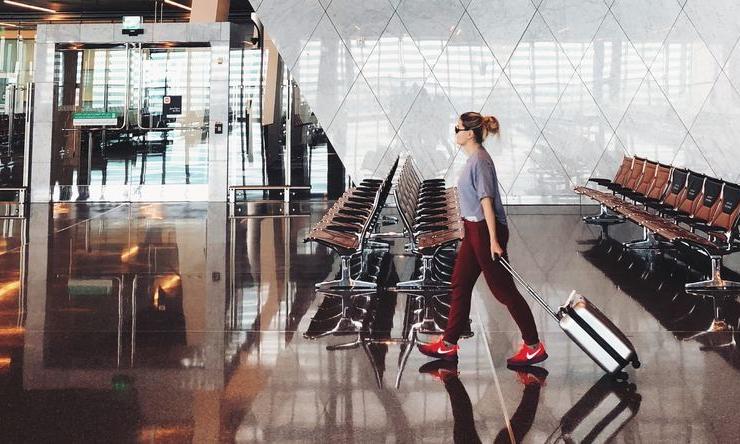Pack hand sanitizer, patience for healthy holiday travel
The most wonderful time of the year also is one of the most hectic times of the year. If you plan to travel this season, it is important to take precautions for your health. Experts from Baylor College of Medicine offer tips to ease your holiday travel.
Travel germs
Whether you are traveling by plane, train or automobile, Dr. Irvin Sulapas, assistant professor of family and community medicine and primary care sports medicine physician, offers a few tips on how you can avoid getting sick:
- Practice proper handwashing.
- Cough into your sleeve or elbow rather than into your hands.
- Bring a travel-size hand sanitizer.
- Bring disinfectant wipes to wipe down seats, handles or table trays.
Airport stress and road rage
Traveling causes stress and anxiety for many people, especially when navigating the airport. Dr. Eric Storch, professor in the Menninger Department of Psychiatry and Behavioral Sciences, provides tips to cope with the stress:
- Focus on the ultimate outcome, namely spending time with those you love and/or rest and relaxation, versus the stressful path to getting there.
- Give yourself plenty of time to travel and bring relaxing things to do during the process, i.e. books or music.
- Take self-care time as needed – walks, breaks, naps – to help cope with a busy setting.
- Set up something to look forward to once the travel/break is over.
On the roads, extra traffic can trigger road rage. Dr. Asim Shah, professor and executive vice chair in the Menninger Department of Psychiatry and Behavioral Sciences, suggests the following on road trips:
- Leave the house earlier in order to avoid becoming upset, irritated, stressed or anxious.
- Avoid driving distractions, such as talking or texting on your cell phone.
- If you are the target of another driver’s road rage, you should simply ignore the driver.
- Keep the purpose of your journey in mind.
Sleeping on an airplane
Dr. Philip Alapat, assistant professor of medicine in the section of pulmonary, critical care and sleep medicine, says keeping the area around your seat cool, dark and quiet is the best way you can fall asleep and feel rested while on a plane:
- Use sleep masks or eyeshades for darkness.
- Use noise cancelling headphones or earplugs to keep it quiet.
- Avoid caffeine and alcohol prior to and during the flight since it can impair your quality of sleep.
- To avoid jetlag, try to match your sleep to the hours of the time zone to which you are traveling. If it is nighttime in the country you are traveling to, try to sleep on the plane so you can be in sync with the time when you arrive.
- Try a neck pillow – they stabilize your neck while in a seated position and can improve sleep quality.
Preventing blood clots
According to Dr. Zachary Pallister, assistant professor in the division of vascular and endovascular therapy in the Michael E. DeBakey Department of Surgery, the longer the flight, the higher the risk for deep vein thrombosis, a blood clot that forms in a vein in the body. Air travel longer than four hours is generally considered the point where risk becomes the most significant.
Conditions that put individuals at a higher risk of developing a blood clot include recent major surgery, prior blood clot, cancer, pregnancy, advanced age, oral contraceptive use and hereditary thrombophilia (hyper-clotting individuals). Pallister offers the following tips to help prevent a blood clot from forming during a long flight or car ride:
- Get up and walk frequently, every one to two hours.
- Flex and extend the ankles every one to two hours.
- Wear graduated compression stockings between 15 and 30 mmHg (a measure of pressure). Graduated stockings apply a specific amount of pressure at the ankle and then gradually less and less pressure as they move up the leg.
- Discuss prophylactic medications with a physician prior to prolonged travel, though most individuals will not need medication.










